Cube wide-angle digital camera OLYMPUS C-5060
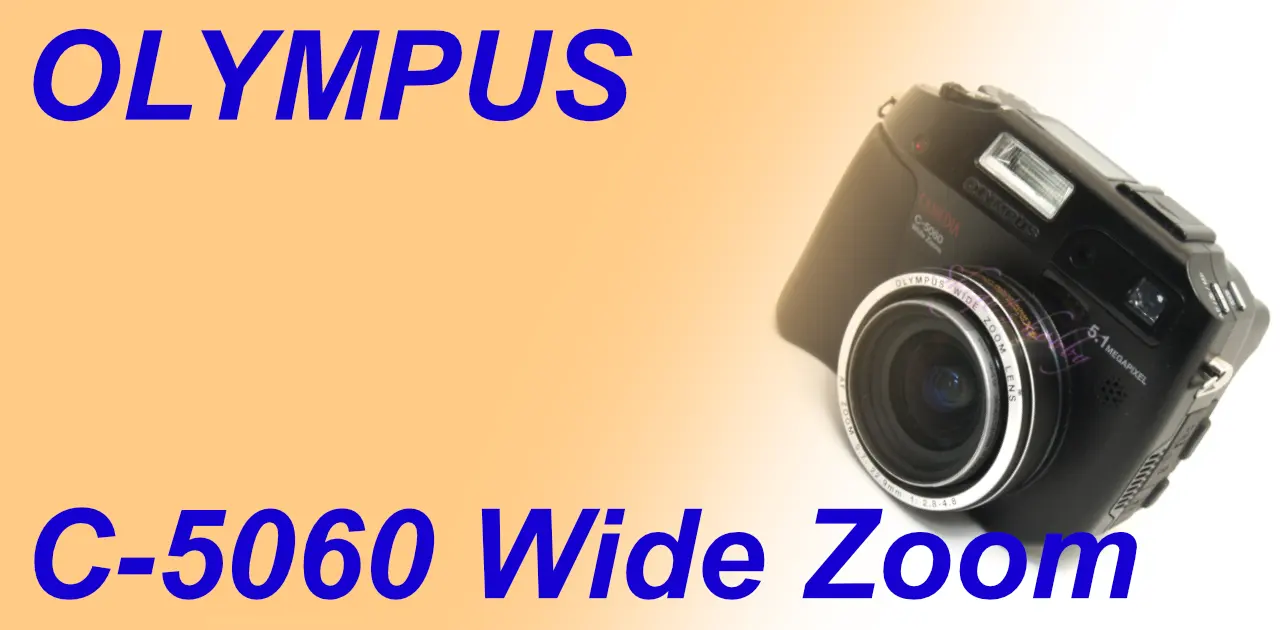
A review of the OLYMPUS Camedia C-5060 Wide zoom and sample photos.
- Please see the disclaimer regarding advertising here.
- Italicized links in the text are advertisement links that take you to other sites.
Table of contents
Gallery
- The gallery photos are direct developments of data recorded in Raw format.
レビュー
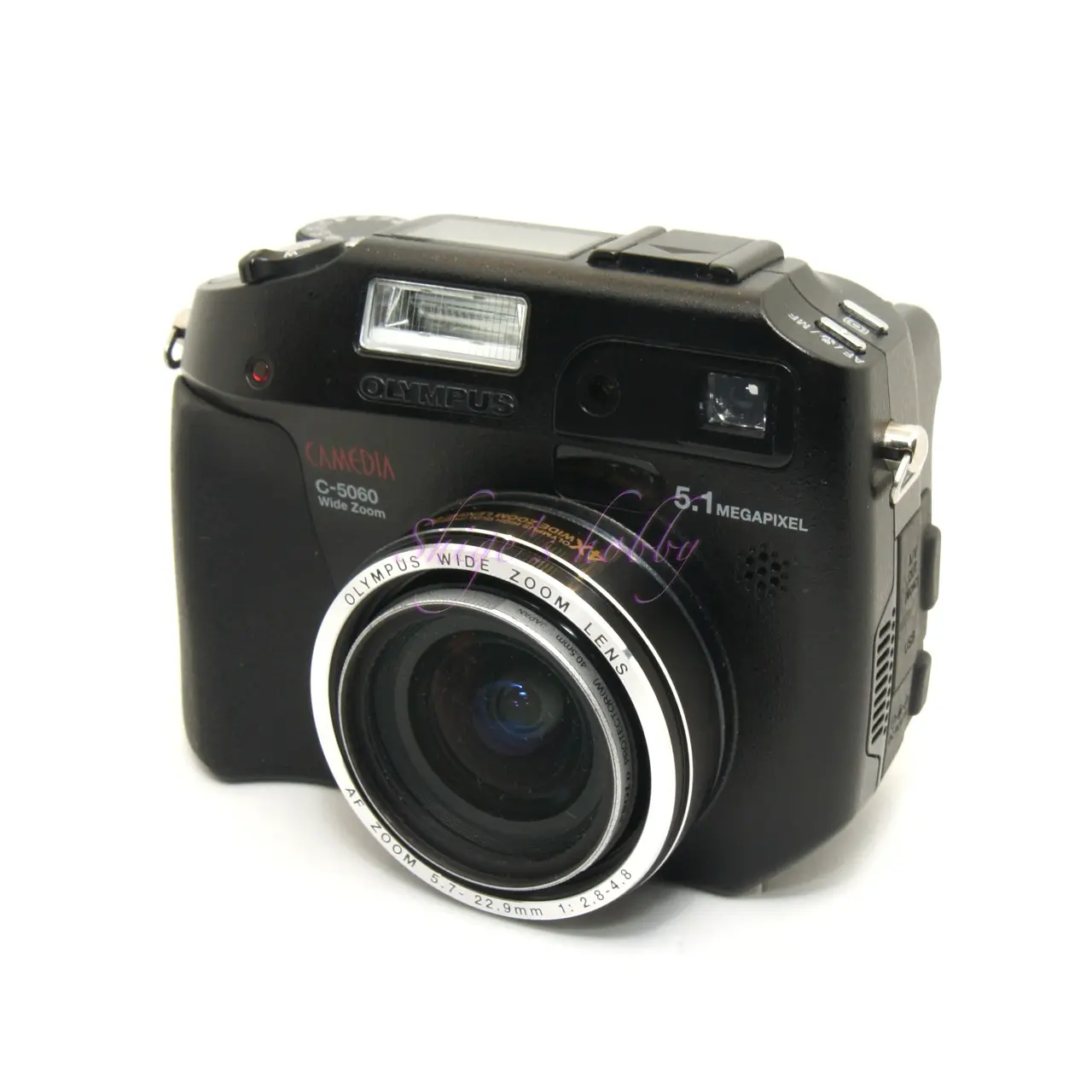
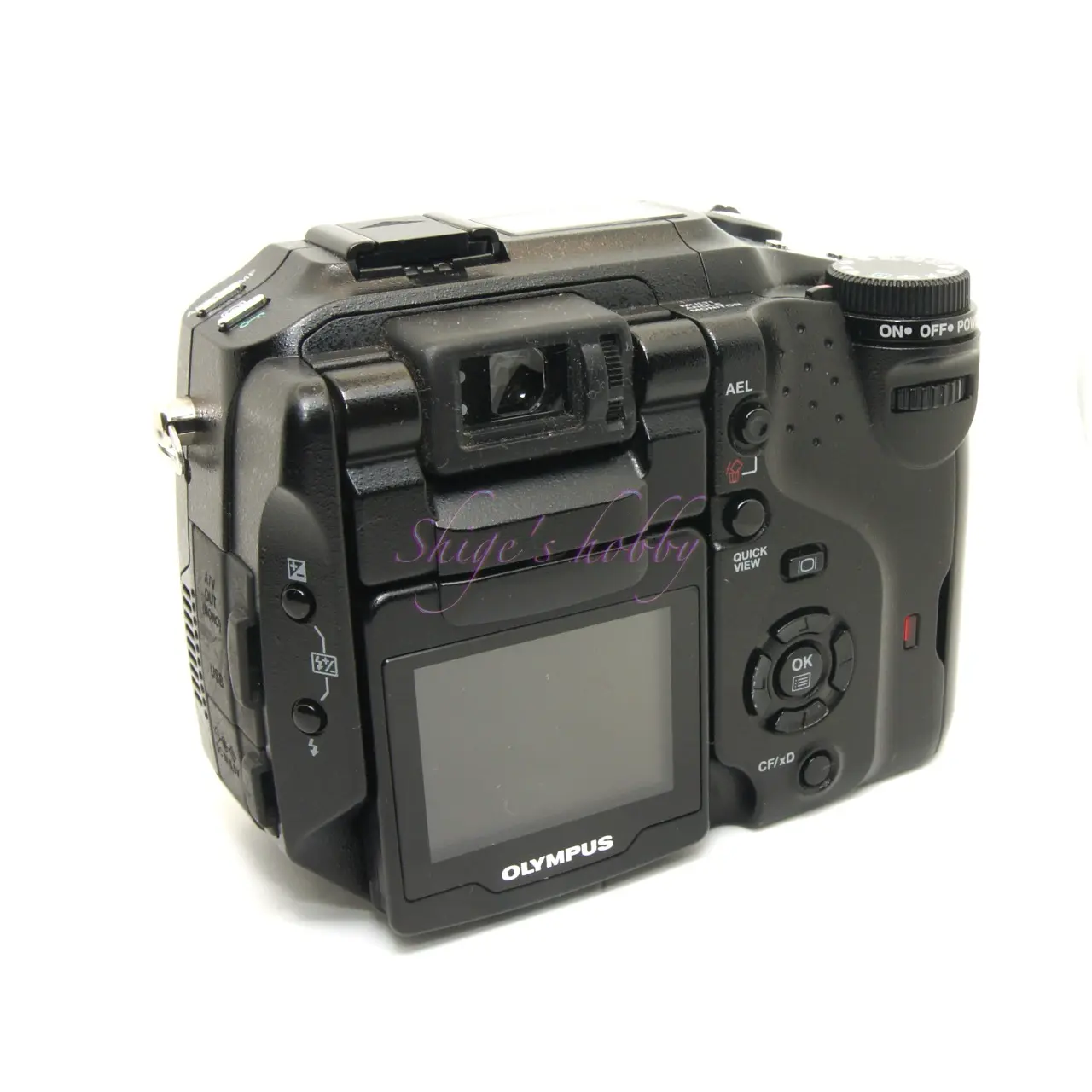
1.Overview
The C-5060 Wide Zoom is a compact digital camera released by Olympus in 2003.
Detailed specifications are listed in the table below, but the main features are a 5 megapixel CCD sensor and a 4x zoom lens with a 35mm equivalent of 27mm to 110mm.
The sensor size is 1/1.8 inches, and the actual focal length at the wide-angle end is 5.7mm, which can also be confirmed by converting it to a 35mm equivalent focal length of 27mm.
The viewfinder is a zoom-linked, real-image, optical viewfinder, and you cannot tell the focus from the viewfinder just by checking the shooting frame; you have to judge it by the AF focus sound or check the rear LCD.
The rear LCD is 1.8 inches and 130,000 dots, but it has an elaborate gimmick, moving up and down with an arm and can also rotate 180 degrees on the horizontal axis.
The recorded image sizes are Raw (ORF format), TIFF, SHQ, and HQ. Raw, TIFF, and SHQ save images at 2592 x 1944 pixels, which is the full 5 megapixels.
The recording medium for captured images is the XD Picture Card, which supports up to a maximum capacity of 2GB. There are four types of XD Picture Cards: H, M+, M, and no brand, which differ in transfer speed and the time it takes to record an image. In addition, CompactFlash is compatible.
Since the recording times for these recording media vary depending on the medium, a summary of the recording times is provided in the additional information.
The battery is compatible with the BLM-1 and its successor, the BLM-5.
The cameras that use this battery are as follows:
- E-1
- E-3
- E-5
- E-30
- E-300
- E-330
- E-500
- E-510
- E-520
- C-7070
- C-8080
・Camera series development
The Olympus C-xxxx (4 digits) series began with the C-2000 ZOOM in 1999, and the final model was the C-8080 in 2004. The final model was the C-7070, released in 2005.
The C-5060 Wide Zoom is a camera that appeared in the latter half of the C-xxxx series, and has the following evolution:
- The C-5050, released in 2002, had a lens focal length of 35-105mm
- The C-5060, introduced in 2003, had a lens focal length expanded to 27-110mm
- The flagship camera C-8080, released in 2004, had a lens focal length of 28-140mm
- The C-7070, released in 2005, is a camera that replaces the image sensor of the C-5060 with a 7-megapixel sensor.
2.Usability
The C-5060 has a chunky cubic shape, which was in the style before slim cameras became popular. It is 9cm x 11cm long and 6cm deep, giving the impression of being a fairly large camera. The camera is easy to hold, but it feels like you are holding a block of material.
The focal length is changed by zooming with a lever on the top of the body. The camera has a large lens barrel, but its edges are made of decorative plate, and it does not have any mechanism to double as a zoom ring or focus ring.
I am happy that the focal length on the wide-angle side has increased from 35mm to 27mm compared to the previous C-5050, but it is unfortunate that the lens brightness has become darker, from F2.8 to F4.8. In particular, the telephoto end of F4.8 is quite dark for a camera equipped with a sensor from the era when ISO100 was the standard.
The C-5050 is equipped with a 3x zoom lens equivalent to F1.8-2.6 and a focal length of 35-105mm.
And at the wide-angle end of 27mm, the image is distorted. It’s not so bad for distant objects, but the distortion is quite noticeable at a distance of about 1m. This can’t be helped since the actual focal length is 7.1mm, which is ultra-wide, but the only way to correct Raw images is in post-processing.
Affinity Photo2, which I personally use on a daily basis, is paid software, but it has a correction profile for the C-5060, so if you turn on the distortion correction function, it will automatically correct the distortion from the exif information.
OM Workspace from OM Digital Solutions, the successor to OLYMPUS Master/OLYMPUS Master 2, the original software provided by Olympus, also has a distortion correction function.
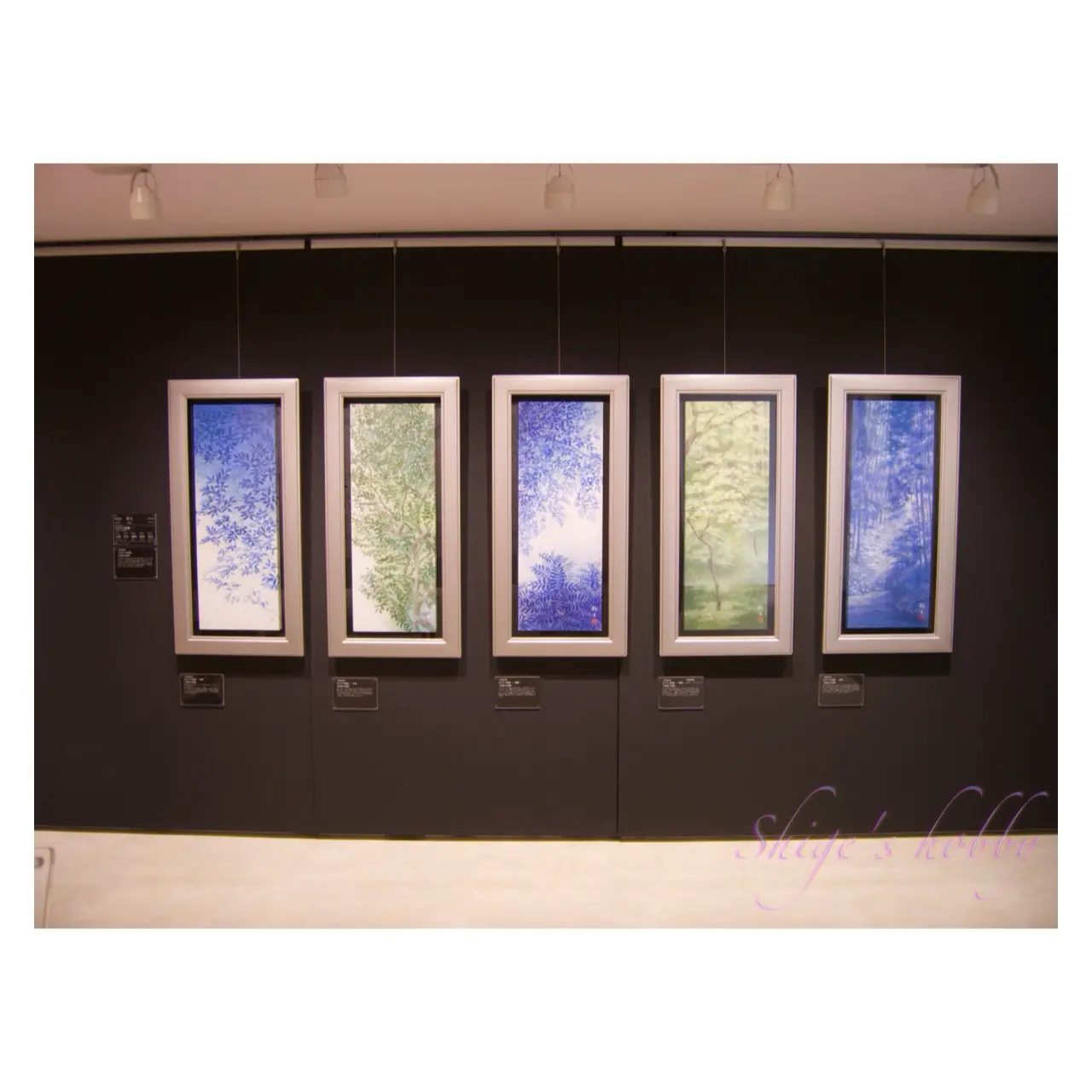
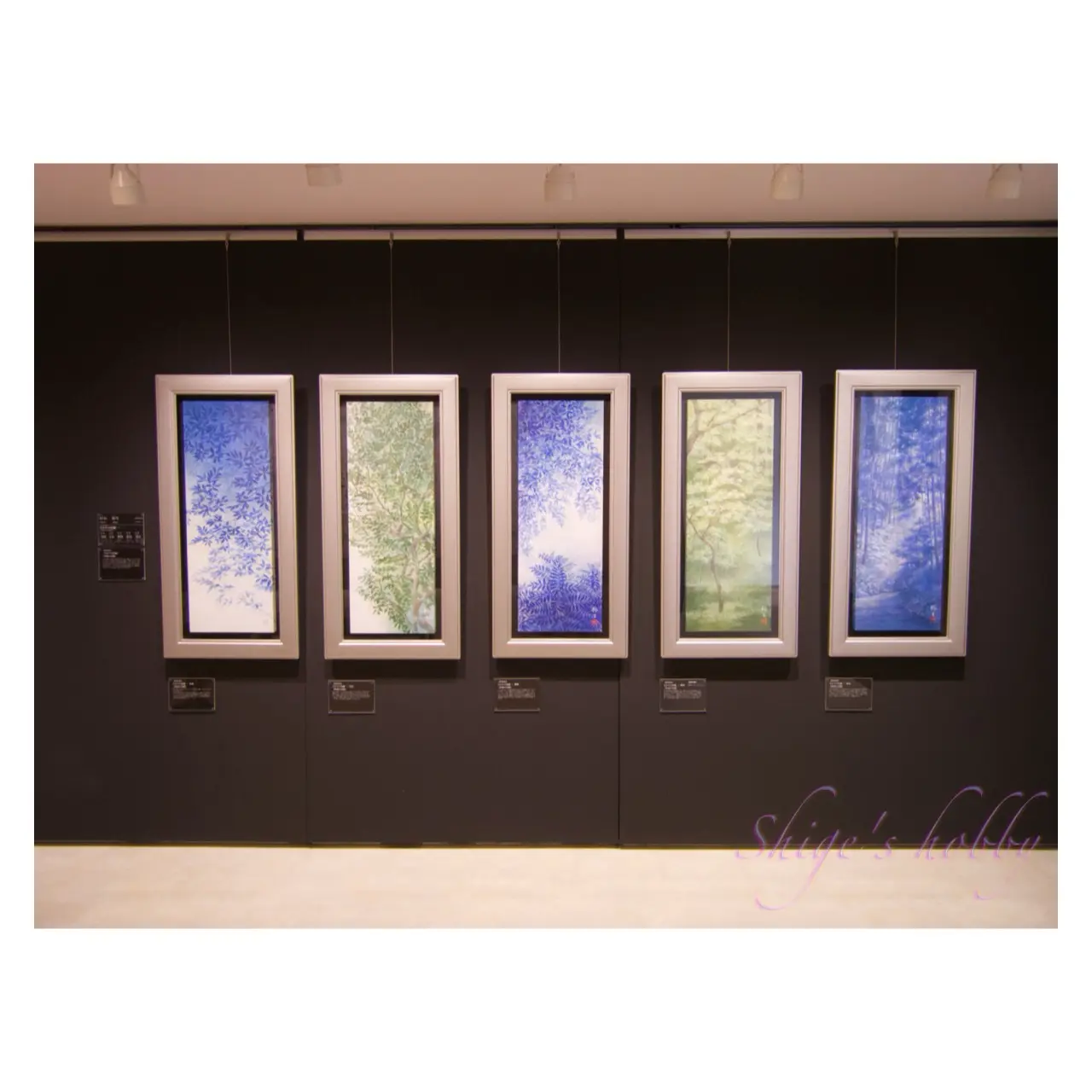
I noticed when shooting in Raw format that the time it takes to complete writing differs depending on the type of memory card, so I measured it and found that the XD Picture Card H was the fastest and the Compact Flash was the slowest. Details of the measurement results are listed in the additional information.
The Raw format is the original ORF format of Olympus cameras, and the preview software included with Mac OS does not support it, so I was unable to read the images.
I have confirmed that this ORF format can be developed using the OM Workspace and Affinity Photo2 introduced earlier. There should be other software that can develop it as well.
With a 2GB memory card, you can take about 260 images in Raw (ORF) format.
The battery is compatible with the BLM-1 and its successor, the BLM-5. Even with a used battery, there was still some charge left after taking about 200 photos in Raw format. As mentioned above, Raw format takes 6.5 seconds to write one image, so continuous shooting is not possible, so one battery may be enough if you are going around shooting all day. Of course, it goes without saying that you should be prepared with a spare battery.
The C-8080 Wide Zoom, which is the pinnacle of the dinosaur-like evolution of the C-xxxx series, has an expanded focal length of 28-140mm and a brighter lens, and is a camera I would like to try someday. I have had several opportunities to buy it, but I have not yet had it in my hands.
3.Summary
To sum up the OLYMPUS C-5060, the camera has excellent camera functions, but it is a shame that it is slow to respond and has a dark lens.
The slow response is unavoidable due to the time of the camera’s release. Still, the shooting functions are more than sufficient, with a shooting range covering 27-110mm, Raw recording capability, and 5 megapixels.
This is a camera well suited to carefully capturing everyday life for posting on social media, blogs, and other websites.
Memory card related information
1.Recording time on memory card
I manually measured the time it took to write to a memory card when shooting in Raw format with the C-5060 using a stopwatch.
The results showed that the XD Picture Card H had the fastest recording time of 6.5 seconds. This was 4 seconds faster than the slowest CompactFlash card, which took 10 seconds, and the difference in writing time was noticeable.
For other times, please refer to the table below.
Even so, this was the first time I felt the power of the XD Picture Card H’s transfer speed. And the slow M-type XD Picture Card became a candidate for restructuring. As for CompactFlash cards, it is difficult to find cards with a capacity of 2GB or less and a high transfer speed, so I did not test any cards other than the ones I had. Because of the slow transfer speed, I keep CompactFlash cards in the card slot as emergency recording media.
| Memory card type | Raw Write Time |
| xD Picture Card H | 6.5 sec |
| xD Picture Card M+ | 7.5 sec |
| xD Picture Card M | 9 sec |
| xD Picture Card No Brand (64MB and up) | Not available |
| xD Picture Card No Brand (up to 32MB) | 10sec |
| Compact Flash (1GB, 20x speed) | 10sec |
2.xD Picture Card
There are four types of xD Picture Cards: H, M+, M, and no brand, which differ in transfer speed and have different specifications for data transfer speed. If your camera supports it, using a card capable of high-speed transfer will reduce image recording time.
Some cameras can only use xD Picture Cards of 512MB or less, while others can use up to a maximum capacity of 2GB, so you need to check which capacity your camera supports.
| Memory card type | Read Transfer Speed | Write Transfer Speed | Card Capacity |
| xD Picture Card H | 8.0 – 15.0MB/s | 5.0~9.0MB/sec * | 256MB〜2GB |
| xD Picture Card M+ | ? | 3.75MB/sec ** | 1GB,2GB |
| xD Picture Card M | 4.0MB/sec | 2.5MB/sec * | 256MB〜2GB |
| xD Picture Card No Brand (64MB and up) | 5.0MB/sec | 3.0MB/s | 64MB〜256MB |
| xD Picture Card No Brand (up to 32MB) | 5.0MB/sec | 1.3MB/sec | 16MB,32MB |
| Compact Flash (1GB, 20x speed) | 3.0MB/s(0.15MB/s*20) | 3.0MB/s? | 8MB〜2GB |
** The write speed of M+ was calculated from the statement in an ITmedia article (published January 22, 2008 at 2:11 pm) that it is “1.5 times faster than M.”
3.Compact Flash
I have previously experienced compatibility issues with CompactFlash cards depending on the model of digital camera, and when I tried inserting CF cards of various capacities that I had on hand into the C-5060, I was able to complete the formatting of CompactFlash cards of 1GB or less in the C-5060 and use them.
CF cards with a capacity of 2GB or more could not be formatted or used in the camera. When inserting a CF card of 2GB or more, the camera prompted me to format it, but even after performing the format, the operation did not complete and the card could not be used. The compatibility list below states that Microdrives are compatible with up to 4GB, so it seems that a 4GB CompactFlash would also work, but I was unable to complete the formatting of the card I had on hand.
As a test, I formatted a 2GB Compact Flash (CF) card on an Olympus E-20 and was able to use it on the C-5060. I don’t know why I can’t format a 2GB Compact Flash on the C-5060.
Specification
| Items | C-5050 | C-5060 | C-7070 | C-8080 |
| Zoom x | 3x | 4x | 4x | 5x |
| Focal length | 35−105 (7.1~21.3) | 27-110 (5.7~22.9) | 27-110 (5.7~22.9) | 28~140 (7.1~35.6) |
| Lens Construction | 10 elements in 7 groups | 8 elements in 7 groups | 8 elements in 7 groups | 15 elements in 13 groups |
| Aperture | F1.8~F2.6 | F2.8~F4.8 | F2.8~F4.8 | F2.4~F3.5 |
| Numbers of pixels | 500 | 500 | 700 | 800 |
| Sensor size | 1/1.8 | 1/1.8 | 1/1.8 | 2/3 |
| View Finder | Optical real image | Optical real image | Optical real image | EVF, 0.44 inches, 240,000 pixels |
| Back LCD | 1.8 inch, 114k pixels, tilt up and down | 1.8 inches, 130,000 pixels, free angle | 1.8 inches, 130,000 pixels, free angle | 1.8 inch, 134k pixels, tilt up and down |
| Battery | 単3型x4 | BLM-1、BLM-5 | BLM-1、BLM-5 | BLM-1、BLM-5 |
| Recorded Media | SmartMedia xD Picture CF | xD Picture CF | xD Picture CF | xD Picture CF |
| Wight(g) | 375 | 430 | 435 | 660 |
| Size(mm) | 113.5×79.5×69.5 | 116×87×65.5 | 116×87×65.5 | 124×84.5×99 |
| Release date | 2002.11 | 2003.11 | 2005.3 | 2004.3 |
| Body color | Black | Black | Black | Black |
| Price(Yen/No-tax) | 128,000 yen | Open price Under 100,000 yen | Open price Under 80,000 yen | Open price Under 130,000 yen |
Options
・Optional installation and purchase
There is a thread in front of the lens, so a filter can be attached. The filter diameter is 40.5mm, which is a standard size. However, when the CLA-7 adapter for attaching a conversion lens is attached with the filter attached, the filter interferes with the adapter and the camera shuts down. At first, I was confused because I didn’t know why it was shutting down. Since the information can be displayed on the LCD display, I thought it would be nice if it notified me that the adapter and the filter were interfering, but since it is an old camera, it may be inevitable that it is not so considerate. I was a little worried that I had caught a defective product, but it was just a mistake.
When I purchased the wide converter “WCON-07C” from Amazon Japan, I was sent the old model “WCON-07”. Amazon has a flexible return policy, so it is helpful for the buyer when there is a mistake, but I wish they would register the correct product and sell it in the first place.
It is also not compatible with the MASD-1 released by Olympus, which converts microSD cards to xD pictures.
- Conversion lens adapter “CLA-7” (Suggested retail price: 2,100 yen)
- Bayonet mount conversion lens
- Wide converter “WCON-07C” (Suggested retail price: 19,000 yen) for 19mm ultra-wide-angle
- Teleconverter “TCON-17C” (Suggested retail price: 15,000 yen) for 187mm telephoto)
- High-intensity external flash “FL-50” (Suggested retail price: 56,000 yen)
- Lens protection filter “PRF-40.5” (Suggested retail price: 2,400 yen, scheduled for release in late November)
- UV filter “UVF-40.5” (Suggested retail price: 2,400 yen, scheduled for release in late November)
- PL filter “PLF-40.5” (Suggested retail price: 2,400 yen, scheduled for release in late November)
- Dedicated rechargeable lithium-ion battery “BLM-1” (Suggested retail price: 8,800 yen)
- High-speed charger “BCM-1” (Suggested retail price: 10,000 yen, sold separately)
- Power battery holder “B-HLD20” (Suggested retail price: 15,000 yen)
- AC adapter “C-8AC” (Suggested retail price: 4,500 yen)
- Multi-function remote control “RM-1” (Suggested retail price: 3,000 yen)
- Remote cable “RM-CB1” (Suggested retail price: 6,500 yen)
- Waterproof protector “PT-020” (Suggested retail price: 28,000 yen, scheduled for release in late November)
- Black genuine leather semi-hard camera case (with strap) “CSCH-16” (Suggested retail price: 6,500 yen)
- Soft camera case “CSCH-17” (Suggested retail price: 3,200 yen) for easy portability
- Camera bag “CBG-01” (Scheduled for release in late November / Suggested retail price: 15,000 yen)
- Using the CF card adapter “MA-CF10” (Suggested retail price: 7,500 yen) allows the use of “xD Picture Cards” in the CompactFlash slot of the “C-5060 Wide Zoom”
Reference links
Update history
- 2025.2.20
Affiliate links
- Please see the disclaimer regarding advertising here.
- Italicized links in the text are advertisement links that take you to other sites.


Leave a Reply